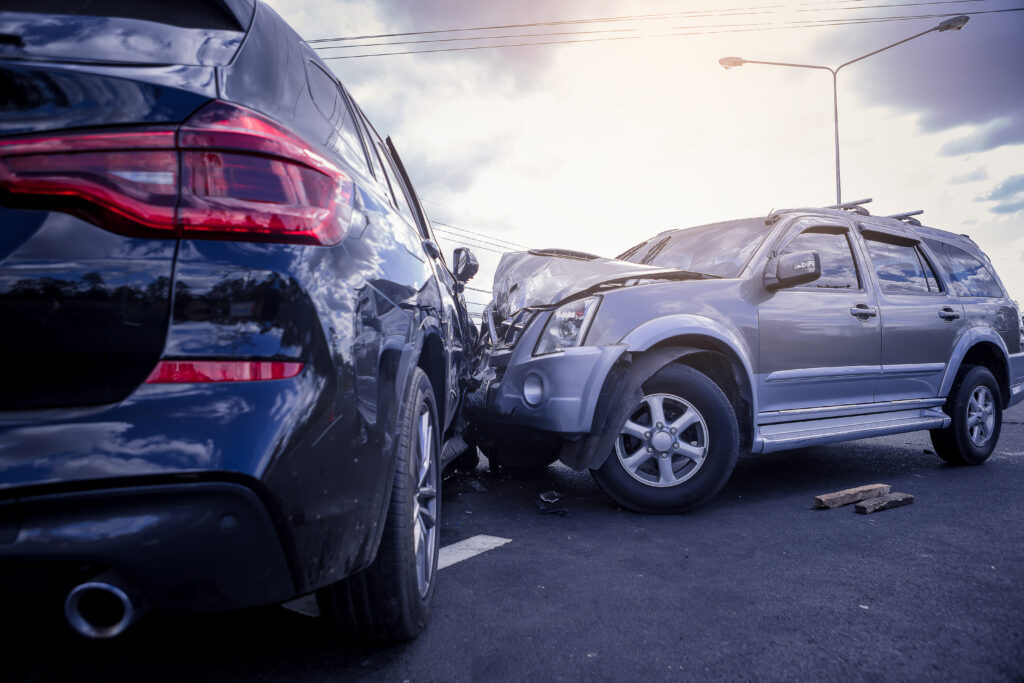As we have discussed in our previous Philadelphia car accident articles, UIM/UM coverage is one of the most important coverages PA motorists should choose when buying car insurance. However, there are some instances when an insured driver, who has UIM/UM coverage, may not submit a UIM/UM claim because he has limited tort. In this article, we will explain UIM/UM, limited tort and limited tort exceptions. In addition, we will discuss the limited tort exceptions that prevent PA limited tort drivers from filing UIM/UM claims.
When Does UIM Coverage Apply?
UIM coverage comes into play when the at-fault drivers’ liability coverage is not sufficient to cover the injured drivers/passengers’ injuries. UIM claims are often submitted when injured individuals have catastrophic injuries, and the at-fault drivers have minimum liability coverage. The minimum amount of liability coverage PA motorists can carry per PA law is $15,000.
For instance, Driver A causes a head on collision with Driver B in Northeast Philadelphia. Driver B is seriously injured and requires surgery. Driver A has $15,000 in liability coverage. Driver B has $100,000 in UIM coverage. Driver B’s injuries and damages amount to $100,000. In such a case, Driver B can recover $15,000 from Driver A and file a UIM claim to recover the remaining $85,000. It is important to note, however, that if Driver B’s damages amount to $200,000, the maximum amount he can receive from a UIM claim is $100,000. Therefore, the maximum amount the driver may receive is $115,000.
When Does UM Coverage Apply?
UM coverage comes into play when at-fault drivers do not have car insurance. Using the same facts in the above example, but with one change – Driver A does not have car insurance. In such a case, Driver B can file a UM claim with his insurance company. However, the maximum amount Driver B can receive is $100,000.
Related: Philadelphia Car Accident Law – Does Limited Tort Apply to UIM/UM Claims?
When Can You Access Limited Tort & UIM/UM?
If an insured driver/passenger has limited tort on their car insurance policy, they cannot sue for pain and suffering damages, also known as non-economic damages. However, they may sue for other damages, such as lost wage and out of pocket expenses.
There are exceptions to limited tort pursuant to PA’s Motor Vehicle Financial Responsibility Law (MVFRL) §1705(d)(1). A limited tort driver will be deemed to have full tort if the at-fault driver:
(i) is convicted or accepts Accelerated Rehabilitative Disposition (ARD) for driving under the influence of alcohol or a controlled substance in that accident;
(ii) is operating a motor vehicle registered in another state;
(iii) intends to injure himself or another person, provided that an individual does not intentionally injure himself or another person merely because his act or failure to act is intentional or done with his realization that it creates a grave risk of causing injury or the act or omission causing the injury is for the purpose of averting bodily harm to himself or another person; or
(iv) has not maintained financial responsibility as required by this chapter, provided that nothing in this paragraph shall affect the limitation of section 1731(d)(2) (relating to availability, scope and amount of coverage).
Click here to continue to part 2 of this article which discusses the “serious injury” exception and its relation to UIM claims.
FREE Consultations After a Philadelphia, PA Car Accident – (215) 399-9255.
DISCLAIMER: This website does not create any attorney-client relationship or provide legal advice. It is crucial to speak to a qualified lawyer prior to making any decision about your case. Read full disclaimer at the bottom of this page.

